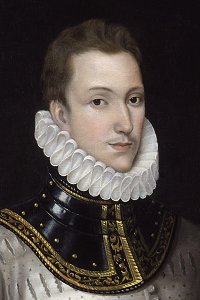Introduction

Born: November 29/30, 1554, Penshurst Place, Kent, England.
Died: October 17, 1586, Zutphen, Gelderland, Netherlands, of wounds received in the Battle of Zutphen (September 22, 1586). An epitaph of Sidney read England has his body, for she it fed; Netherlands his blood, in her defence shed; The Heavens have his soul, The Arts have his fame, The soldier his grief, The world his good name.
Buried: Old St. Paul’s Cathedral, London, England (church was destroyed in the Great Fire of London in 1666).